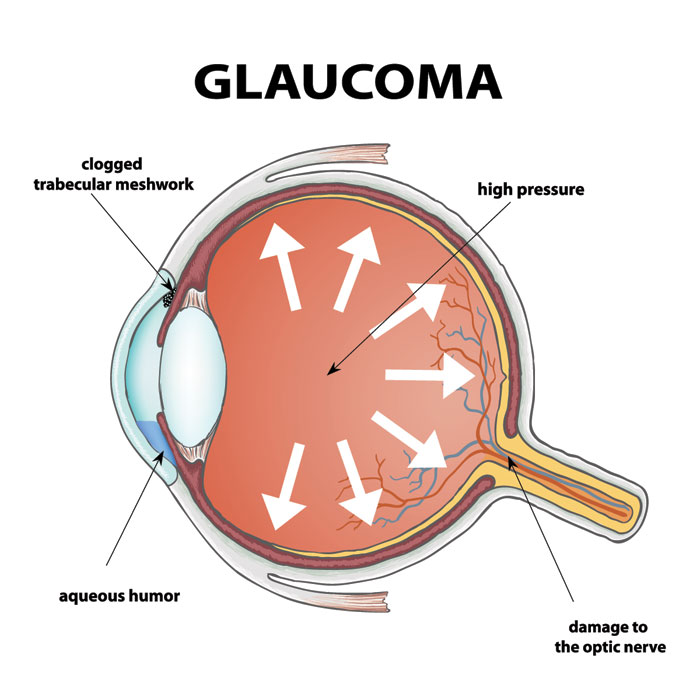Understanding the Advanced Stage of Glaucoma
I. Introduction
Glaucoma is a group of eye diseases that damage the optic nerve, which plays a vital role in transmitting visual information from the eye to the brain. When left untreated, glaucoma can progress to its advanced stage, causing irreversible vision loss or blindness.
This article explores the advanced stage of glaucoma, its warning signs, and treatment options to help Filipinos and others affected manage the condition more effectively.
II. What is the Advanced Stage of Glaucoma?
The advanced stage of glaucoma occurs when the disease has caused significant and often permanent damage to the optic nerve. At this stage, individuals experience severe visual field loss, particularly peripheral vision, often referred to as tunnel vision.
Glaucoma usually progresses slowly and painlessly, making it easy to overlook. Without early diagnosis and consistent treatment, the disease can quietly evolve into this advanced stage—where treatment becomes more complex, and vision loss is difficult to control.
III. Symptoms of Advanced Glaucoma
The symptoms of advanced glaucoma are more pronounced and may interfere significantly with daily life. These include:
-
👁️ Severe peripheral vision loss (tunnel vision)
-
🌫️ Blurred or hazy central vision
-
🌙 Difficulty seeing in low light or at night
-
💡 Problems adjusting between bright and dim environments
-
😣 Frequent eye discomfort or pain
If left unmanaged, these symptoms can lead to complete blindness. Tasks like driving, reading, and recognizing faces become increasingly difficult, and patients may become more reliant on others for mobility and care.
IV. Diagnosis and Treatment Options for Advanced Glaucoma
Diagnosing advanced glaucoma involves a comprehensive eye examination, typically including:
-
Tonometry – to measure eye pressure
-
Visual field testing – to assess how much peripheral vision is lost
-
Optical coherence tomography (OCT) – to visualize optic nerve damage
-
Gonioscopy – to evaluate fluid drainage in the eye
✅ Treatment Options for Advanced Glaucoma:
Even though damage cannot be reversed, several treatments can help slow disease progression and preserve remaining vision:
1. Prescription Eye Drops
-
First-line treatment to reduce intraocular pressure (IOP)
-
May be used in combination with other therapies
2. Oral Medications
-
Used when eye drops are insufficient
-
Help reduce fluid production or improve fluid drainage
3. Surgical Options
-
Trabeculectomy: Creates a drainage channel to relieve pressure
-
Glaucoma drainage implants: Tube shunts to help drain excess fluid
-
Minimally Invasive Glaucoma Surgery (MIGS): A newer, safer alternative for some patients
4. Lifestyle Adjustments
-
Eat a nutrient-rich diet high in antioxidants (Vitamin A, C, E, and zinc)
-
Reduce screen time and manage stress
-
Avoid smoking and excessive caffeine
-
Regular exercise, under medical advice, can help lower eye pressure
Important: Each treatment plan should be tailored by an eye care specialist, based on the severity and type of glaucoma.
V. Conclusion
Reaching the advanced stage of glaucoma can be life-altering, but it doesn’t mean giving up hope. With early intervention and consistent treatment, it’s possible to slow progression and maintain quality of life.
If you or a loved one is experiencing symptoms like tunnel vision, blurred sight, or eye pain, consult an ophthalmologist immediately. Early action could mean the difference between saving and losing your sight.
👉 Visit Glaucoma.ph for more information, guidance, and resources on glaucoma awareness and care in the Philippines.
VI. Frequently Asked Questions (FAQ)
Q: Can advanced glaucoma be reversed?
A: No. The damage to the optic nerve caused by glaucoma is permanent. However, timely treatment can slow the progression and help preserve remaining vision.
Q: Is advanced glaucoma painful?
A: Some individuals with advanced glaucoma, particularly those with acute angle-closure glaucoma, may experience eye pain, redness, or nausea. Others may not feel pain but still experience severe vision loss.
Q: Can exercise help manage advanced glaucoma?
A: Moderate, doctor-approved physical activity may help lower eye pressure and improve overall health. However, some high-intensity exercises may increase eye pressure—so always consult your eye specialist before starting any new fitness routine.




